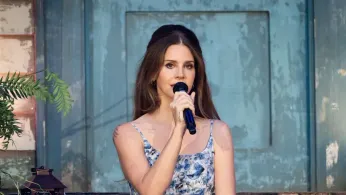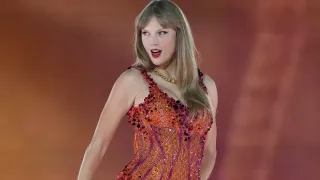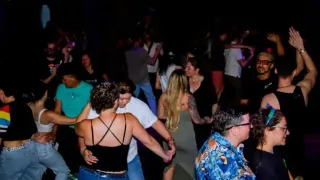
Aug 14
Lana Del Rey Blocks Ethel Cain on Instagram After Shading Her in New Song
READ TIME: 3 MIN.
On August 14, 2025, social media was set ablaze when Ethel Cain revealed via Instagram Stories that she had been blocked by Lana Del Rey following a series of pointed exchanges on the platform. The revelation came just hours after Del Rey posted a teaser of a new song—reportedly track 13 from her upcoming album, produced by Jack Antonoff—that includes the lyric: “Ethel Cain hated my Instagram post” . The lyric immediately fueled speculation about the relationship between the two artists, both of whom have built substantial followings among LGBTQ+ communities for their emotionally resonant music and outspoken support of queer issues.
After the song snippet was posted, Ethel Cain took to Instagram to confirm that Del Rey had blocked her. This direct acknowledgement intensified the public discussion, with fans dissecting both artists’ online interactions and their histories within the queer music scene. Del Rey later clarified her decision to block Cain, citing repeated incidents of body-shaming and personal boundary violations. In a public comment, Del Rey stated, “I didn’t know who Ethel was until a few years ago—when someone brought to my attention the disturbing and graphic side-by-side images she would often post of me next to unflattering creatures and cartoon characters, making constant comments about my weight. I was confused about what she was getting at. Then, when I heard what she was saying behind closed doors from mutual friends and how she was inserting herself into my personal life, I was definitely disturbed.” .
The feud has sparked a wider conversation within LGBTQ+ circles about the impact of body-shaming and the challenges of maintaining personal boundaries in highly visible online communities. Both Lana Del Rey and Ethel Cain have been praised for their vulnerability and advocacy in the past, but the current dispute highlights how even respected figures can become embroiled in harmful dynamics. For many LGBTQ+ individuals, online spaces serve as crucial sites of community and self-expression, but they can also amplify negative behaviors such as body-shaming, which disproportionately affects LGBTQ+ people, especially transgender and non-binary individuals.
Advocacy organizations have repeatedly emphasized the importance of fostering affirming and inclusive environments both offline and online. The Human Rights Campaign notes that “body-shaming and harassment in digital spaces can have a severe impact on mental health and self-esteem, particularly for LGBTQ+ youth” . While neither artist has commented on the broader LGBTQ+ implications of their dispute, fans and commentators have pointed to the need for accountability and compassion in interactions between public figures.
Both Lana Del Rey and Ethel Cain are recognized for crafting music that resonates deeply with LGBTQ+ audiences. Del Rey’s melancholic style and Cain’s haunting Americana have cultivated devoted queer followings who see their struggles and aspirations reflected in the artists’ lyrics. The direct reference to Ethel Cain in Del Rey’s new song marks a rare instance of contemporary musicians addressing each other in such a public manner, prompting debate over the boundaries of artistic expression and personal critique.
Some fans have expressed concern that the feud detracts from both artists’ positive contributions to LGBTQ+ visibility in music, while others argue that accountability—especially around issues like body-shaming—is essential, regardless of celebrity status. The incident comes at a time when representation and authenticity in mainstream music remain pressing topics, with many queer and transgender listeners seeking spaces where their identities are affirmed rather than policed.
As of this writing, neither Del Rey nor Cain has issued further statements addressing the controversy’s impact on their LGBTQ+ fans. Social media continues to serve as the primary venue for discussion, with hashtags related to both artists trending across platforms. Some users have called for restorative conversations between the artists, while others advocate for clearer boundaries and respect for personal privacy.






